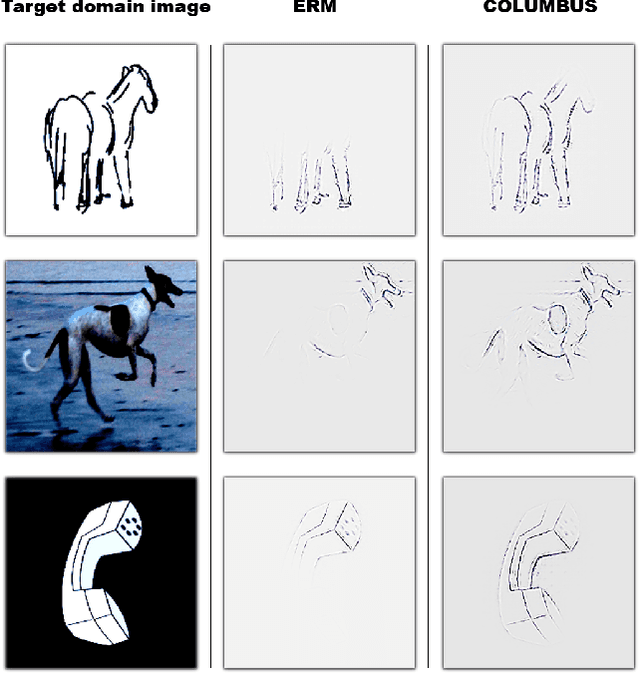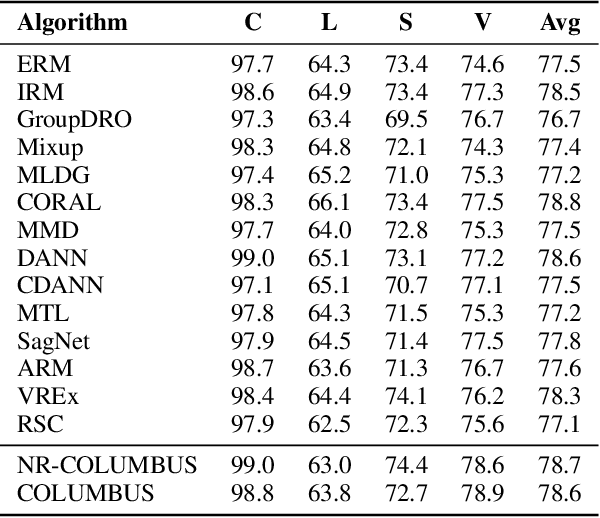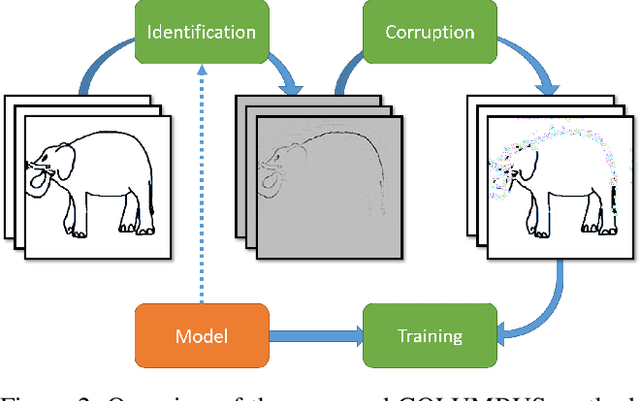COLUMBUS: Automated Discovery of New Multi-Level Features for Domain Generalization via Knowledge Corruption
Paper and Code
Sep 09, 2021



Machine learning models that can generalize to unseen domains are essential when applied in real-world scenarios involving strong domain shifts. We address the challenging domain generalization (DG) problem, where a model trained on a set of source domains is expected to generalize well in unseen domains without any exposure to their data. The main challenge of DG is that the features learned from the source domains are not necessarily present in the unseen target domains, leading to performance deterioration. We assume that learning a richer set of features is crucial to improve the transfer to a wider set of unknown domains. For this reason, we propose COLUMBUS, a method that enforces new feature discovery via a targeted corruption of the most relevant input and multi-level representations of the data. We conduct an extensive empirical evaluation to demonstrate the effectiveness of the proposed approach which achieves new state-of-the-art results by outperforming 18 DG algorithms on multiple DG benchmark datasets in the DomainBed framework.
 Add to Chrome
Add to Chrome Add to Firefox
Add to Firefox Add to Edge
Add to Edge